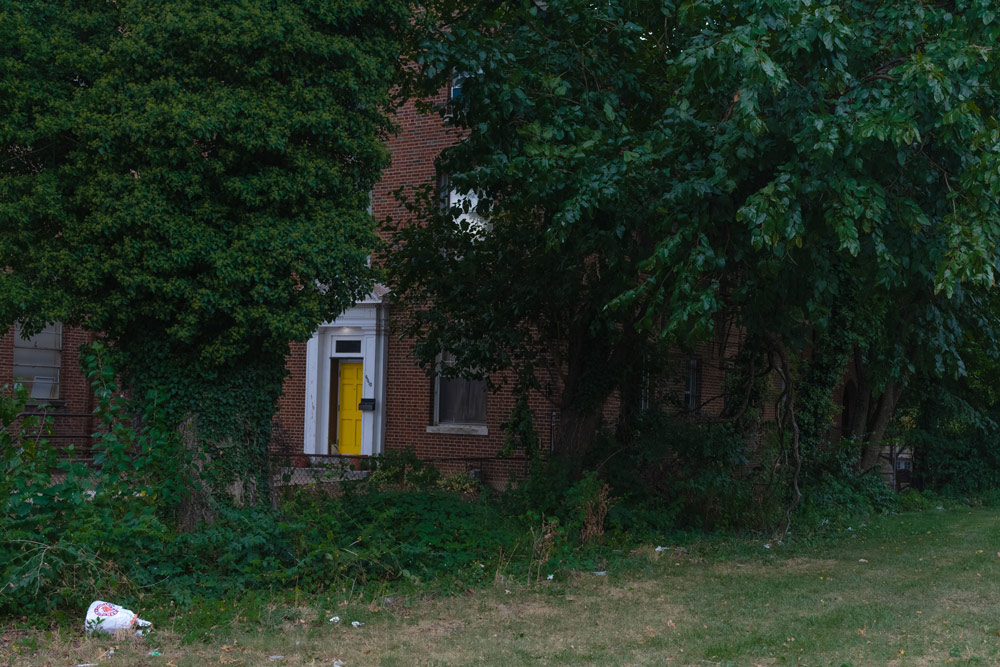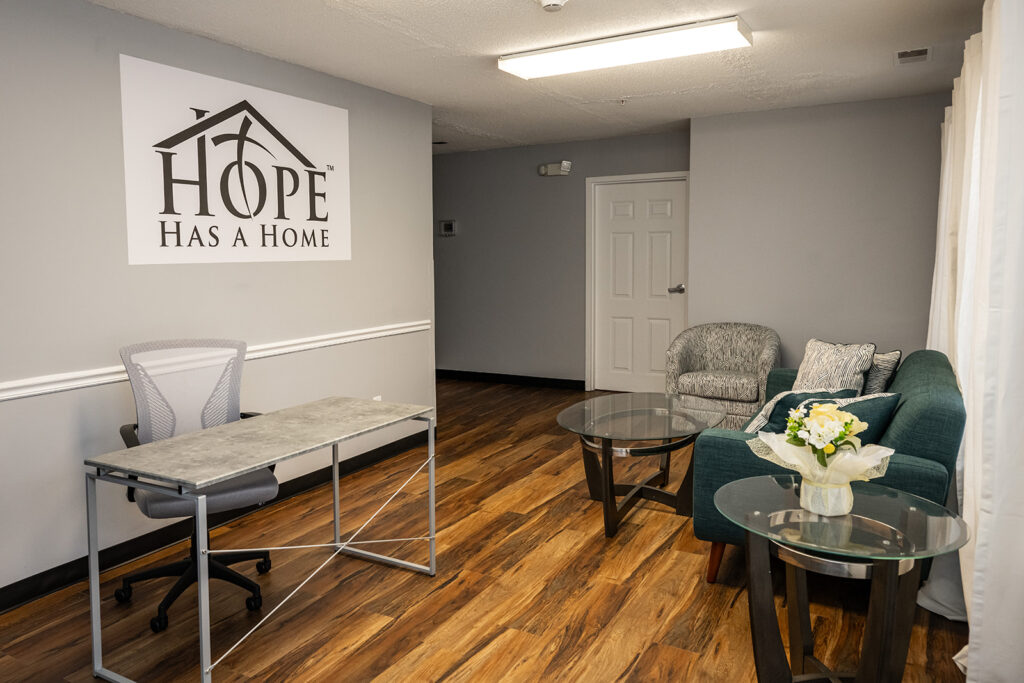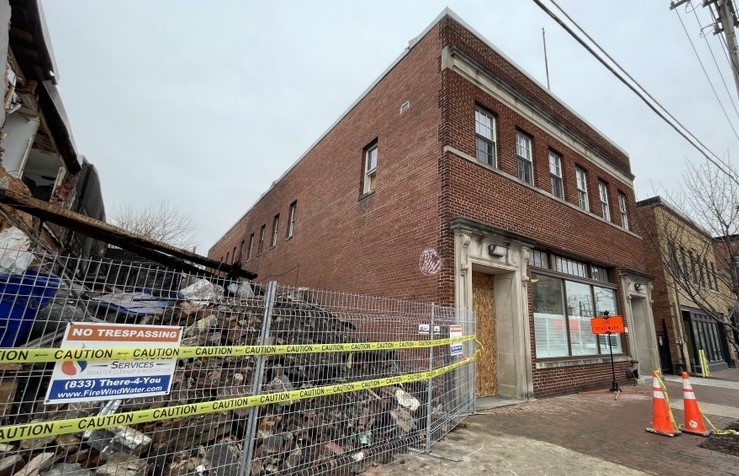Outside the low-barrier Nativity Women’s Shelter, a woman stood on the street, her face white with fear.
She had just been informed that there were no more beds available. She had been turned away from this shelter before, and slept in front of it multiple times when there were no more beds.
A bystander might have seen her as just one of the nearly 1,000 single women experiencing homelessness in D.C this year. But anyone would have been horrified to know that, on a previous night, the traumatized woman had been awoken and violently raped outside of the shelter door.
“Staff counted people out at the door and left one little sheep out there,” said T. Brooks, a frequent resident of the 20-bed shelter. Due to privacy concerns and fear of retaliation from the shelter staff, Brooks only agreed to speak with Street Sense Media without publishing her real name.
According to the Catholic Charities D.C. website, you must show up by 7 p.m. to get a bed. From there, Brooks said, if you are late or the shelter reaches capacity, you are turned away.
The police report on the incident states a man approached the woman outside of the shelter at 6010 Georgia Ave. NW in the early hours of August 3 and proceeded to choke, hit, threaten, and forcibly rape her.
“There were two places [roped off with crime scene tape]: where she slept at the front of the building when she couldn’t get in; and then over on the side, which must be where she was dragged,” Brooks said. “On the side, there’s a gate at the front, but no gate at the other end. So she couldn’t escape.”

Desperate for shelter and fearful in the days following the attack, the woman ended up at Adam’s Place. a city-run day center where temporary beds for women have been added to address capacity issues in recent years. However, the day center is connected to a men’s shelter managed by Catholic Charities and a majority-male facility was the last place she wanted to be after the rape.
“She was petrified,” said Brooks,who has lived in the shelter for several months and claimed to have raised a number of complaints about the lack of security there before the rape occured. In the weeks since it happened, she has spoken with more than 20 individuals in city government, including the Department of Human Services, the Metropolitan Police Department, and the attorney general’s office.
“[The rape] was a big deal and [staff] made little of it,” Brooks said. “I’m homeless but I’m a taxpayer –– they should be doing something [to protect us].”
The shelter is located next to a public charter school and across the street from the Fourth District police station.
Aliana Gertz, a public relations specialist for MPD, said that the case is an ongoing investigation. When asked to provide more details on the case, Gertz wrote in an email that any more information could compromise the privacy of the victim and jeopardize the case.
A spokesperson for DHS said the agency could not comment on an ongoing investigation. “Although the safety and well-being of the residents we serve is a major priority for DHS, this remains an active criminal investigation so we are unable to provide comment or interview,” Public Information Officer Dora Taylor wrote in an email on Sept. 9.
When asked why this is the department’s policy, Director Laura Zeilinger said in a statement, “DHS is aware of the allegation. In situations where there is a pending investigation with the Metropolitan Police Department, we defer to MPD on specific comment for that case. This is critical to ensuring the integrity of criminal justice activities.”
Zeilinger added that DHS has an anonymous system that customers can use to report concerns or incidents.
Brooks said she filed her first security complaints after witnessing the night staff texting, watching television, or sleeping during their evening shifts. As a former law enforcement worker, she said the security officers do not perform consistent bag checks and at least once let someone with a knife enter the facility.
The officers also refuse to do perimeter checks around the back, Brooks said, and frequently let men in to see women engaging in sex work. “They don’t seem to be responsive or care what happens,” Brooks said. “We need to feel protected and feel safe.”
Catholic Charities — the organization contracted by DHS to run Nativity Women’s Shelter as well as several other shelters in the D.C. area –– provided this statement in a Sept. 16 email:
“We have several processes in place (from written grievances to an anonymous whistleblower hotline) that we encourage residents to use to voice their concerns so that we can investigate and resolve any issues that arise in our shelters,” wrote Amanda Chesney, Executive Director of Homeless and Housing Services. “We work to maintain open lines of communication so we can address any situations that make them feel unsafe.”
According to Brooks, there was little to no change in Nativity’s security immediately after the violent rape occurred. The only difference she has seen is that the staff now walk around the upstairs more.
“Nothing has really changed,” she said. “They do it one time and that’s it but that’s not enough to measure or say it’s changed.”
Catholic Charities is far from the only homeless services provider struggling with violence, particularly violence against women, in the District.
A 2017 report by the Women’s Task Force of the District of Columbia Interagency Council on Homelessness surveyed 434 women experiencing homelessness in D.C. and found that more than half had experienced violence or threats to their safety during just their then-current episode of homelessness.
After a stabbing in March at the 801 East Men’s Shelter, also managed by Catholic Charities, Street Sense Media reported that the security company contracted for that shelter was replaced immediately, both at 801 East and at all other city shelters where the company had been used.
Another woman who spoke under the condition of anonymity said that at the shelter she stays in, the Patricia Handy Place for Women, a fellow resident was stabbed in the thigh and hand. She said the resident lost her bed after her late return from the hospital and spent the next two weeks sleeping in Union Station. There was no security overhaul like the reaction to the stabbing at 801 East.
“They remind us that we’re nothing and nobody because we’re homeless,” the Pat Handy resident said. “They don’t give a d*** about us … we are the commodity.”
Schroeder Stribling, chief executive officer for N Street Village, the organization that runs the Pat Handy women’s shelter, said she believes the stabbing incident the resident described happened in spring 2018, when one female resident stabbed another resident with a pocket knife.
The injured woman returned from the hospital in the early hours of the morning when the shelter was full, but Stribling said she made it in the next night and stayed on and off for several weeks after.
Stribling echoed that security is always an issue at women’s shelters, not only in the ones under N Street Village but in D.C. as a whole.
“[Security’s] not a process you finish and it’s done,” Stribling said. “Mistakes will be made…it’s a difficult environment. We will always be working on safety and security.”
According to Stribling, the shelters are always improving, but it remains important to point out the system’s flaws, including the high rate of violence against homeless women.
“[The topic of security concerns] is not a happy lens but it’s one of the truths,” Stribling said.
In response to the rape, Catholic Charities said they have consulted with MPD and ”are taking measures to increase security at the Nativity shelter, including adding more exterior lighting and clearing any obstructive shrubbery.”

Brooks, however, said that these changes alone are nowhere near adequate. “The community has not been notified that there’s a rapist on the loose or anything,” she said.
The only way to protect the women of Nativity, she said, is to go to what she considers the root of the problem –– the staff. “They’re not doing what is necessary for safety and they know that,” Brooks said.
In a separate Sept. 16 email to its partner agencies and organizations, Catholic Charities D.C. announced that the Nativity Women’s Shelter’s name had been changed to the Saint Josephine Bakhita Women’s Shelter “in honor of a saint whose legacy exemplifies resilience and self-determination in the face of immense adversity.”
“The decision to change the shelter’s name was made to better identify the facility with Catholic Charities Housing and Homeless Services and to prevent confusion over a name shared with the nearby Nativity Church, which is unaffiliated with the shelter’s operations,” the email said.
Anyone who has experienced similar situations to those described in this article is encouraged to contact Street Sense Media at [email protected] or 202-347-2006 x 13.
The Catholic Charities DC anonymous whistleblower hotline can be reached at 1-877-426-7060 or 202-266-3069.
Update (09.18.2019)
This article has been updated to include a statement from DHS Director Laura Zeilinger explaining why the organization could not comment on the Nativity Women’s Shelter incident. Street Sense Media received the statement after our publishing deadline.








